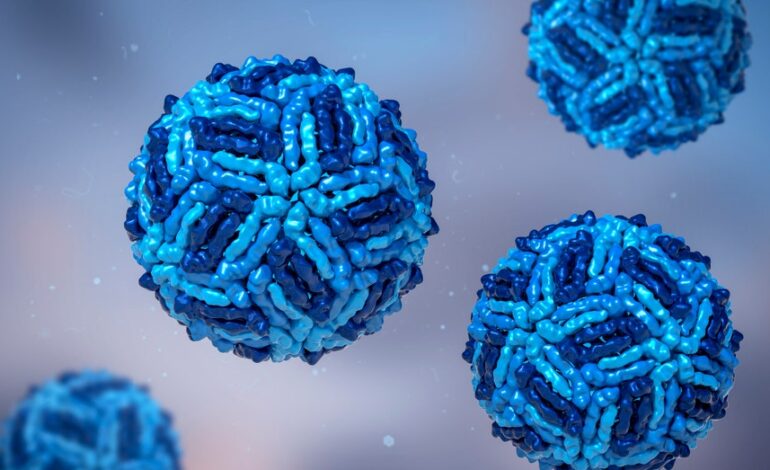Kansas Reports Five Serious West Nile Virus Cases as Mosquito Season Peaks

Kansas health officials are closely monitoring six cases of West Nile virus (WNV) reported this year, with five classified as serious. As of August 15, 2023, the Kansas Department of Health and Environment (KDHE) has documented three cases in the north-central region and three in the south-central area of the state.
The KDHE has indicated that five of these cases are neuroinvasive, which is a more severe form of the illness. According to Jill Bronaugh, a spokesperson for KDHE, non-neuroinvasive cases typically present with flu-like symptoms, while neuroinvasive cases can lead to significant complications.
Understanding Neuroinvasive Cases
“Neuroinvasive cases are those in which there is clinical evidence of involvement of the central nervous system in the disease process,” Bronaugh explained. Symptoms of neuroinvasive cases can include high fever, inflammation of the brain, disorientation, paralysis, muscle weakness, numbness, and vision loss. These cases often require extensive medical intervention and have longer recovery times.
Despite the severity of these cases, the current numbers remain below last year’s totals. In 2022, Kansas recorded 64 infections, including four deaths, according to KDHE data. Health officials are urging caution as mosquito activity is expected to rise during the late summer months, which typically sees a peak in WNV transmission.
Current WNV Statistics and Prevention Measures
The KDHE has established a West Nile virus dashboard that is updated weekly during the surveillance season, which runs from July through September. The Centers for Disease Control and Prevention (CDC) notes that WNV is primarily spread through bites from infected mosquitoes. Each year, approximately 2,000 people in the United States are diagnosed with the virus, although many cases go unreported due to mild symptoms.
Symptoms typically appear between two to six days after a bite from an infected mosquito. Common signs include high fever, headache, neck stiffness, and in severe cases, disorientation or paralysis. Unfortunately, there are currently no specific medications available to treat West Nile virus, but most infected individuals recover without lasting effects.
Health authorities recommend several preventive measures to help reduce the risk of mosquito bites. These include using insect repellent, wearing long sleeves and long pants when outdoors, and eliminating standing water in residential areas where mosquitoes can breed.
As the peak of mosquito season approaches, vigilance and proactive measures will be essential to mitigate the potential spread of West Nile virus across Kansas.






